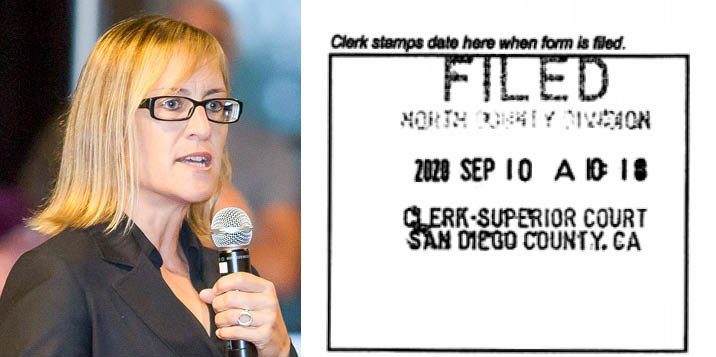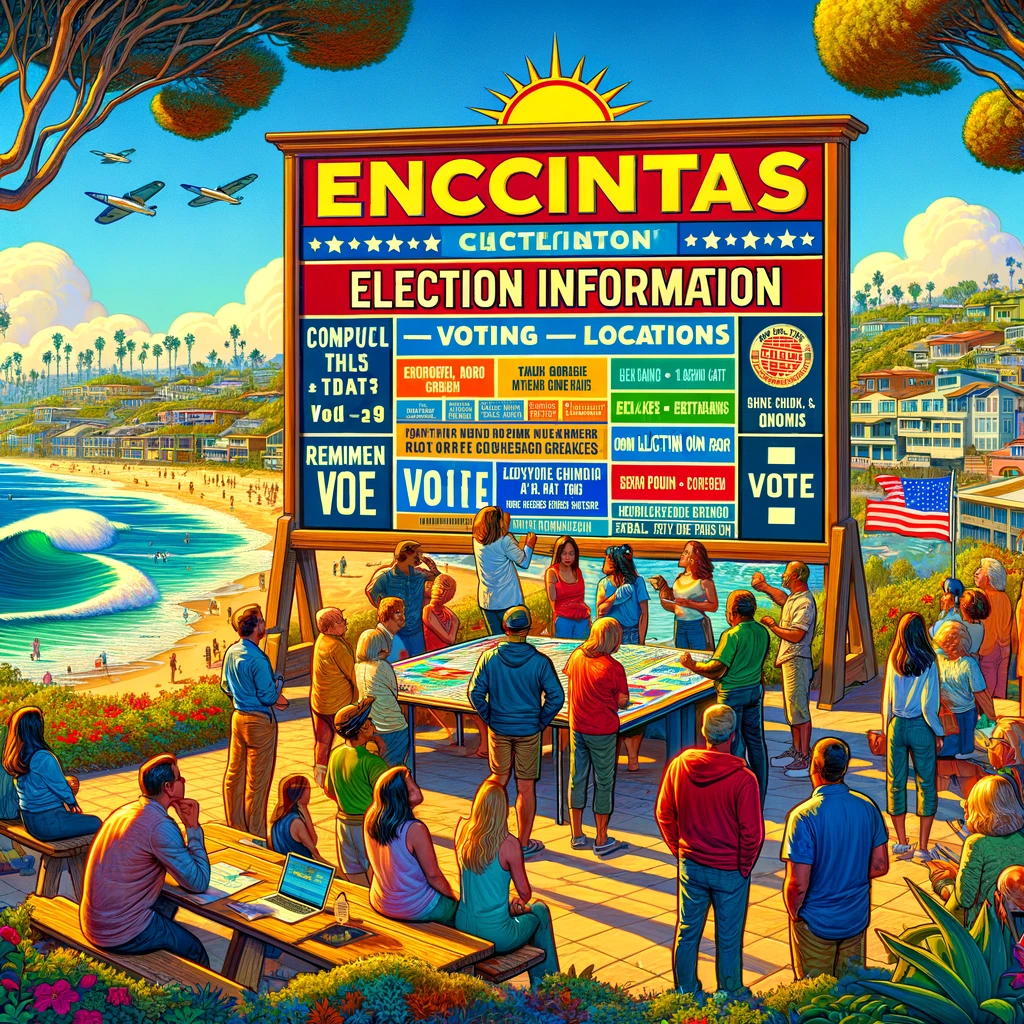CARLSBAD — A Vista Superior Court judge awarded more than $47,000 in attorneys’ fees to Noel Breen and Anthony “Tony” Bona on April 9 after ruling Carlsbad Councilwoman Cori Schumacher had violated their First Amendment rights.
Judge Cynthia Freeland awarded $32,193.50 to Bona and $14,997.85 to Breen, who won their anti-SLAPP (strategic lawsuit against public participation) case against Schumacher on March 4. Schumacher was also ordered to pay Larry Posner $2,625 last month after Schumacher filed a restraining order against him in September 2020.
Erik Jenkins, Bona’s attorney, also said he plans to file a civil action against Schumacher for defamation, damage to Bona’s reputation and negligence. Jenkins said the City of Carlsbad may also be named in the suit if it is learned during the discovery phase that the city played a role in assisting Schumacher’s original case.
“He’s very pleased with the ruling,” Jenkins said of Bona’s response to the court’s ruling. “I was appalled at what Councilmember Schumacher was doing. We could correct that wrong. We’re supposed to live in a free society where people are allowed to voice their opinions even if those opinions are not the same as the elected officials. She attempted to quiet Mr. Bona, Mr. Breen, Mr. Posner and it backfired.”
In September 2020 , Schumacher filed a civil harassment restraining order against Breen and two Carlsbad residents, Anthony “Tony” Bona and Larry Posner, alleging stalking, harassment, surveillance and threats from various social media and blog posts.
Freeland granted Bona and Breen’s anti-SLAPP motion on March 4 and ruled Schumacher’s restraining order violated both men’s First Amendment rights. Freeland ruled no reasonable person would consider Bona’s remarks about Schumacher on various social media platforms to be “threats.”
The city was also named in Breen’s cross-complaint as a part of his anti-SLAPP. Freeland, though, ruled in favor of the city’s objection, filed by City Attorney Celia Brewer, to not be liable for costs incurred by Schumacher.
In her motion, Brewer argued the city was not a party to the anti-SLAPP proceedings and Schumacher was acting in her “individual capacity.” Brewer’s motion said the city had “little information” about the case and because the city was not part of the initial SLAPP suit, it was not liable, which Freeland agreed.
“The court’s award of $47,000 against Cori Schumacher — almost twice what she earns every year as a councilmember — sent a clear message that politicians should respect the First Amendment rights of the public,” Talkov said. “We look forward to the court’s future ruling that Cori Schumacher’s political campaigns are liable so that every donation lines the pockets of the attorneys who defeated her in this meritless attempt to chill free speech.”
The city also hired an outside firm, with Emily Chaidez of Best Best & Krieger, LLC representing the city. The city paid more than $9,000 to the firm for representation.
Regardless, Scott Talkov, Breen’s attorney, said he is pressing forward with the collection of Breen’s fees and the outstanding $20,000-plus he believes is owed by Schumacher. He said the collection of what is currently owed, though, can being immediately and he would garnish Schumacher’s wages if necessary.
Schumacher’s attorney, Bryan Pease, argued for reduced fees in both cases, but ultimately was denied by Freeland. Pease was able to successfully get through his concerns about Breen’s additional $20,000 in fees as those came from his original law firm and the cross-complaint filed by Talkov.
“I object to original law firm submitting additional evidence and collecting fees,” Pease said. “They shouldn’t get a second bite at the apple. They don’t get to add more fees.”
Freeland said the court is not going to be very receptive to an increase in fees in pursuit of the cross-complaint. She said the claim is looking for another pocket “in case Ms. Schumacher can’t pay.”
Freeland said April 9 was the day for the original law firm to submit for fees and any claim going forward would have to present legal support for it.







